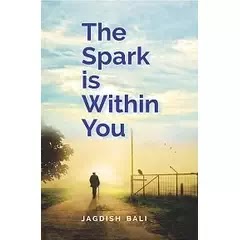Once a little boy said to his father,
who was a philanthropist: “You say that we are on this earth to do good to
others.” “Yes, my son, we are to do good to others,” said the father. “Then
what are the others to do?” Questioned the boy. “My child! it is enough for us
to know what we are to do on this earth, forget what others are here to do.”
In the present society and age, people
often do the mistake of asking themselves – Why should we do good to others if
they have not done the same to us? The present world is mostly ridden by the
question – Mujhe kya Lena or mujhe kya
milega?
Today we certainly need to think of
those great people who did great service to humanity without questioning. Did
Mahatama Gandhi and Neleson Mandela ask before fighting for the cause of
downtrodden – what black people have given to us? What will we get for
dedicating our lives for the downtrodden? Did Nobel Prize winners, Malala
Yousafzai and
Kailash Satyarthi, while working for the welfare of children, ask such
questions?
Living in the materialistic age of
gold rush, people tend to become king Midas. In the craving for the Midas touch,
you no more remain a human being. What are you if not a human being? Voltaire has quipped is so well: “Don’t think
money does everything or you are going to end up doing everything for money.” What
lies in your pocket doesn’t make you a valuable human being, it is what lies in
your heart for others that makes you a man of great value because what is in
your pocket is only for you and your family but what is in your heart is for
others.
As we are human beings, the best
species residing on this earth, we need to make this world a better place. One
best way to do that is to have love, sympathy and compassion for fellow
beings. The man with the compassionate heart
is driven by the feeling of empathy – your pain in my heart. Virtues like
kindness, compassion, love, sympathy and empathy are the essential ingredients of
humanity.
It is appalling that Mujhe kya lena (I am not concerned) runs
like a life slogan in our modern self-centered and money driven society. This modus vivendi has ruined us a lot and
still ruining us. We often stand mute spectators to the exploitation and
oppression of the weaker and downtrodden. We take a nonchalant stand gracefully
saying – oh! I am being impartial. This is, in fact, a wrong argument for the
wrong reason. We close our eyes and shut our mouth to the crime and dare not
stand against the perpetrator even as witness in the court of law. We are
scared lest we should run into any kind of legal or personal trouble. We open
our mouth only when the criminals get freed and that too to blame the law only.
If at all we tend to oppose, it’s only when we ourselves feel harmed by the act.
In fact, we need to have a spirit and courage to raise your voice for the poor
and oppressed fellows.
You can bring a great comfort to the
person by holding out your umbrella to him while he is dripping in the rain.
The Hindi movie, Adhikaar, has a beautiful
lyric – Jeena to hai usikaa jisne ye raz
jaana, hai kaam aadmi ka auron ke kaam aana. The lyric gives a great
message of love and compassion.
Build bridges for the people who will
follow you. Remember the words of Warren Buffett, one of the wealthiest persons
in the world: “Someone is sitting in the shade today because someone planted a
tree a long time ago.” Think not only of yourself and your generation, think of
the generations yet to come. Let’s not forget that we belong to each other.
